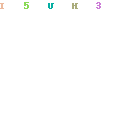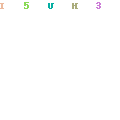Kolkata: There has been a furore in Kolkata over the past few days as residents and celebrities complained of receiving exorbitant electricity bills, some for the month of May, and others for June.
CESC Ltd, a private enterprise owned by Sanjiv Goenka that supplies power to Kolkata and its neighbourhood, has argued that the bills were higher because the actual readings could not be taken for the period of March and April due to the COVID-19 lockdown, that people were billed on an average for those months and that the latest bills, calculated on the basis of actual reading, also included the adjustment for the previous two months.
Consumers, including celebrities and political activists, however, argued that the company is billing extra by manipulating the slab mechanism. Electricity charge per unit increases with the increase in the usage of units and when previous dues are being adjusted with the latest bill, units are being charged at the higher slab rate.
Those to raised their voice of protest on social media include national award-winning filmmaker Kaushik Ganguly, theatre personality Debesh Chattopadhyay, filmmaker Aniket Chattopadhyay, veteran doctor Kunal Sarkar, musician Drono Acharya, BJP women’s wing chief Agnimitra Paul, actors Ankush Hazra and Yash Dasgupta and film producer Shibaji Panja.
Also read: Why Is the Centre Pushing a New Electricity Bill in the Midst of the COVID-19 Crisis?
“This can’t be the new normal @CESCLimited Requesting you to go through my bill that’s INR 17,660, an absurd amount compared to what I have been paying since the last few years,” Yash Dasgupta wrote on Twitter.
Filmmaker Aniket Chattopadhyay wrote on Facebook, “Those who have not died of Covid will surely die after seeing the CESC bills. Is the state government blind?”
Human rights activist Ranjit Sur demanded an inquiry commission. Congress’ Bengal unit president Somen Mitra said he has already written to chief minister Mamata Banerjee seeking her immediate attention.
Many netizens expressed their grievances on social media using the hashtag #cescscam and called as billing as ‘planned theft’, ‘loot’, and ‘dacoity in daylight’. One domestic consumer uploaded her bill showing Rs 40,340. Kaushik Ganguly alleged that his April bill came at Rs 15,100 and May bill at Rs 19,900. Many social media users uploaded copies of their bills showing amounts ranging from Rs 12,000 to Rs 25,000.
An indicator of the extent of people’s anguish is that a Facebook page named CESC Bill Scam was created in the afternoon on July 17 and it had more than 1,400 followers by the evening of the next day. The page described itself as a “protest movement against illogical electricity bill raised by CESC during COVID-19 period”.
Sensing the public outrage, state power minister Sobhandeb Chatterjee on Friday asked the CESC authorities to advertise in all leading newspapers on Saturday and explain their billing mechanism.
“I myself got a bills of Rs 12,000, whereas the usual bill for this month should have been around Rs. 6,000-7,000. Many people are visiting my residence with similar complaints every day. I understand the consumption may have increased because people stayed mostly at home but if there are so much grievances, there must be some problem somewhere,” the minister said.
CESC’s Saturday advertisement in a leading English daily was headlined: “We are not overcharging you”. It claimed, “Two months we billed you less than your consumption during then Covid lockdown period… This month we billed you for actual use for this month plus the unbilled amount for the past two months… we assure that due slab benefits have been reflected in your bills.”
Besides, CESC’s managing director (distribution) Debasish Banerjee’s said in a video message, “For your convenience, we are offering you an option for paying in installments, 50% now and 25% each in the next two months.”
In Kolkata, for domestic consumption, the slab rate is as follows: Rs 4.89 per unit for the first 25 units, Rs 5.4 per unit for the next 35 units, Rs. 6.41 per unit for the next 40 units, Rs 7.16 per unit for the next 50 units, Rs 7.33 per unit for the next 150 units and Rs 8.92 per unit for anything above 300 units.
Political activist Prasenjit Bose, however, said that he was not convinced with CESC’s explanation. “It seems apparent that slab benefits were abused. People got billed at higher slabs.”
According to a CESC official, readings of metres were last taken in the first half of March, for the month of February. The bill for March was prepared based on March 2019 consumption and that the bill for April was based on the average consumption of the past six months.
A man, wearing a mask, looks from a closed gate during lockdown in the wake of coronavirus pandemic, in Kolkata. Photo: PTI
Since the six months before April included three-four months of spring and winter, the average came low, whereas consumption usually increase from April due to rising temperature and increasing humidity level.
Some consumers were given the actual bill in May, including adjustment for March and April, and the rest were given their actual bills for June, including adjustments for March, April, and May.
“The reading for June (done in July) included the total reading for March, April, and May and June. Units charged in March, April and May’s bills have been deducted from the total for four months and the balance added to the usage for June,” explained a CESC official who did not want to be named.
However, Susanta Kumar Patra, a leader of All Bengal Electricity Consumers’ Association (ABECA), criticised this billing process.
“The higher goes a month’s consumption, the higher goes the rate slab. CESC should have divided the four month’s total reading by four to get a monthly average and adjusted each months’ difference separately. Instead, they added all months’ differences to one month, resulting in billing on a higher slab,” said Patra.
Also read: Banishing Visual Reminders of Subjugation in Kolkata
Giving an example of how higher slabs impact the total billing, a consumer said that his total unit consumed for March, April and May 2019 was 648 (138 + 204 + 306 units) and the total energy charges, going by present rates, comes at Rs 4,252. This year, his consumption for these three months is 688 (138 + 114 + 436) units but the total cost comes at 4,754.
“Here is Rs 500 difference for only 40 units. This is because the 100 odd units that had not been billed for March and April would have been billed at Rs 7.16 per unit or Rs 7.33 per unit. But when this is added over the May consumption, it is getting billed at Rs 8.92 per unit. So, in my May bill, 136 units were billed at Rs 8.92 per unit,” said the consumer,
His meter was read in June and he got the actual bill for May. Those whose meters were read in July for the month of June received a harsher blow because far greater units were charged at Rs 8.92 per unit.
ABECA has called for a protest in front of the CESC head office in central Kolkata on Monday. Theatre personality Debesh Chattopadhyay has also called for a protest gathering at the same venue on Monday. Bangla Pokkho, another organisation, has threatened agitation as well.
Snigdhendu Bhattacharya is a Kolkata-based journalist with 15 years’ experience in writing on politics, security, history, environment, and socio-economic and cultural affairs, with a 13-year-stint in the Hindustan Times. He authored Lalgarh and the Legend of Kishanji: Tales from India’s Maoist Movement (HarperCollins India, 2016).
Source: https://thewire.in/government/kolkata-exorbitant-electricity-bills-cesc-ltd



